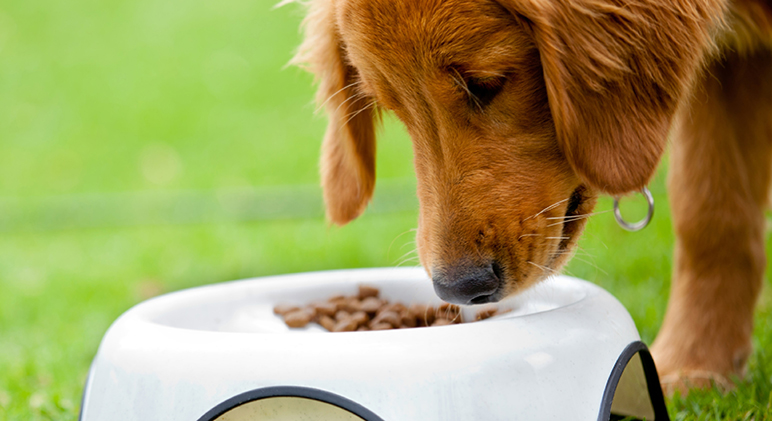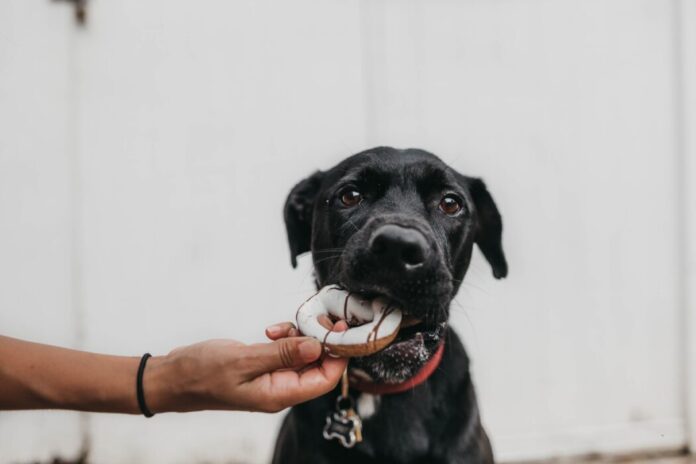Most dog foods are gluten-free. Gluten is now a “red flag” ingredient for both human and pets food. But, why all the fuss?
Celiac disease or gluten intolerance is a human immune response that will take place after you consume food that contains gluten. During the immune response, it will cause damage to your small intestine, especially the villi. Therefore, damaged villi will not absorb the nutrients after you consume the food. It further leads to gastrointestinal problems.

If you want to feed your canine friend with food containing gluten, you first must understand the benefits and downside of such food.
Gluten refers to a protein present in grains such as rye, barley, and wheat. When you feed your canine friend with food rich in gluten, it helps maintain the shape. It also acts as a glue and will hold food together.
Feeding your dog gluten-free food means you get fresh food at your local retailer without rye, barley, or wheat components. You can also find it in online food delivery services, such as Spot & Tango. Click here to find out more: https://spotandtango.com/
Effects of Gluten on Dogs
Studies show that most dogs will feed on gluten and digest it fine. So, after feeding your dog with food containing wheat or other grains, it will not have an adverse effect.
However, some dogs will not tolerate gluten. For humans, this is the condition called celiac disease. But when your dog gets affected, the condition is referred to as gluten-induced enteropathy, gluten sensitivity, or gluten intolerance.
This condition isn’t an allergy and therefore not addressed as one. It is usually a physical condition found in your dog’s gut.
In other words, undigested gluten protein will hang out in your dog’s intestine. The dog’s intestine will treat the food as a foreign invader, which leads to flattening of microvilli and irritation of guts along the intestine wall.
When the microvilli are less, it creates a smaller surface for the absorption of nutrients from food. If this happens, your dog will likely suffer from malabsorption symptoms – weight loss, persistent diarrhea, poor hair coat development, and an impoverished body condition.
Symptoms of Gluten Sensitivity
If you are feeding your dog gluten-rich food, be cautious. You have to observe some of the symptoms associated with gluten.
Your dog will likely get eosinophilic gastroenteritis. It is a chronic disease and will prevent the normal function of its intestines. Various studies have reported that the condition results from gluten.
Another sign is when you realize your dog is itching non-stop. It appears like a Dermatitis Herpetiform condition. Humans can also experience this condition. Unfortunately, it is tricky to diagnose gluten intolerance. The reason it’s hard results because the symptoms are generic. You can easily mistake them with allergies or medical conditions.
After you take the dog to your veterinary, it will cost you a few dollars to confirm through a test. However, the best diagnosis method is when you put the dog for a few weeks consuming gluten-free human-grade dog food.
Unfortunately, it is pretty challenging because you can find gluten in massive traces in various food components. The worst thing, your dog will not complain of discomfort or pain.
If concerned about your pet, look for these signs: restlessness, pain, discomfort, diarrhea, and mood swings.
Final Thoughts
Your canine friend can be gluten sensitive or not. The best way to test it is to feed it with a gluten-free diet and observe the differences. You can take a longer time, such as months, to observe the differences.
Feeding your furry friend with a gluten-free diet is essential. You will be sure the diet will not cause any harm to your dog.
Consult your veterinarian and purchase reliable gluten-free food for your dog. It’s an excellent option to make it thrive.


















